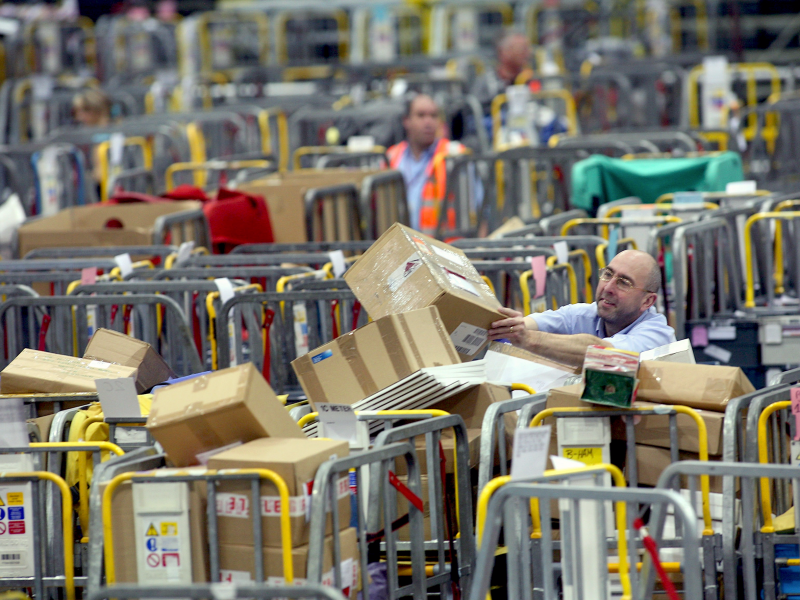The automation of jobs has many advantages, like increased productivity. However, the main disadvantage is that people are concerned their careers may become obsolete in the next few decades.
A recent study showed that millennials in general choose professions that are more “future-proof,” and less likely to be taken over by machines, but that still leaves many unsure of whether a robot will steal their job or not.
The world’s number one job site, Indeed, has over 200 million unique visitors per month, which gives them an insight into what kinds of jobs are available, and what skills are in demand.
Based on this data, Indeed’s EMEA economist Mariano Mamertino has come up with a list of nine career paths that are the least likely to be taken over by machines, or will complement their work.
Mamertino said that the occupatins which will be harder to automate “often involve managing and developing people” and “decision-making and strategic planning, or creative work.”
"Machines have the potential to make the workplace more efficient, by automating mechanical and routine processes, but humans will always play a key-role at the centre," he said.
Scroll down to see if your career makes the list, which is ranked in ascending order by average salary, according to data from Indeed and job search site Glassdoor.
Chef — £18,730 per year.

People will always enjoy the experience of going out for dinner and trying new flavours. Without a chef who is able to taste, new and innovative menus wouldn't be so readily available.
A robot wouldn't be able to combine manual skills with creativity the way a chef does, no matter how hard they try.
In the UK, chefs are in demand, with 22.4% of Head Chef, 22% of Sous Chef, and 21.3% of Executive Chef jobs remaining on the Indeed website for more than 60 days.
Marketing, communications, and design — Around £25,000 per year.

Machines aren't great at critical thinking, or coming up with new and exciting ideas, so your creativity may well be future-proof.
People who design for a living, or who work with ideas, words, and images will probably survive the increase in automation, because machines don't function like humans. Not yet, at least.
Healthcare professionals — £26,380 per year.

Some roles are not going to be taken over by machines for a long time - if at all - because they require human interaction. Healthcare professionals are very much in this category. Nursing requires strong interpersonal and communication skills, which are things you probably won't get from any machine that exists now.
At the moment, in the UK home care nursing jobs are the hardest to fill in the sector, so if you have this job you are still rare and in-demand.
Education and training — £28,664 per year.

Teachers are always in high demand, according to Indeed. There's something about learning new things from a person that makes the information stick better than if you were learning everything remotely. Teachers are especially important when they have languages, because there are often children in classes who have migrated from other countries.
Teaching vacancies in the UK rose by 5% in the past two years, according to Indeed.
Cyber security expert — Around £30,000 per year.

A recent Indeed study shows that the UK had the third highest number of adverts for cyber security roles in the world. London alone is one of the biggest centres for cybersecurity firms.
However, the employer demand for these jobs is three times higher than the candidate interest. Over the past 18 months, there has been an 18% increase in cyber security postings on the Indeed site, so it's unlikely robots will be taking these jobs away any time soon.
Human resources — Around £36,000 per year.

The clue is in the name. While finding the right candidate is becoming increasingly reliant on data and automated screening in some professions, the soft skills that people bring to the table are still valuable.
Emotional intelligence and the ability to read people will always be important in this sector, which robots probably won't be able to do any time soon.
Delivery or Logistics management — £43,435 per year.

There's been a lot of talk in the past year or so about delivery drones, and how they will take over as a method of receiving your post. However, the logistics sector still requires humans to be involved in the oversight and management.
According to Indeed, delivery driver job postings are some of the hardest roles to fill, often being on the site for 60 days or longer.
Data scientist — £55,765 per year.

According to Indeed, there has been a 54% increase in people searching for data science jobs in the UK over the last 12 months. Not only is there a lot of interest, the demand is keeping up with it.
There's only so much a machine can do with algorithms and code. It's the people who combine their scientific expertise and the ability to find the stories hidden in masses of data who are especially useful.
Gig-worker — variable.

The "gig economy" includes short-term contracts or freelance work, like Deliveroo and Uber drivers. This way of working is on the rise, and it requires employees to be flexible and independent - two things robots aren't great at.
There is a lot of debate around the issue of employing people in this way, but overall there has been a sharp rise in users searching for flexible and part-time work in the UK.

